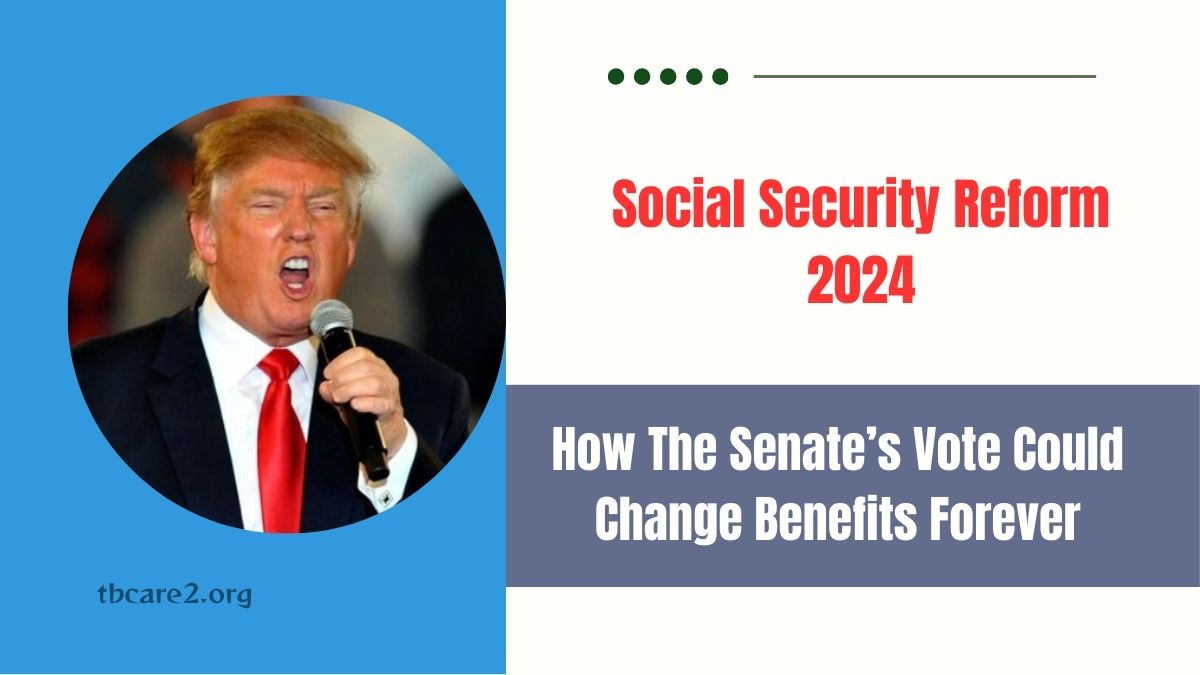The Social Security Fairness Act is gaining attention as the U.S. Senate prepares for a possible vote before the December 20, 2024 deadline. This bipartisan bill, already approved by the House of Representatives, seeks to repeal two provisions—Windfall Elimination Provision (WEP) and Government Pension Offset (GPO)—that affect millions of public service workers.
If passed, the bill could significantly alter Social Security payments, but its path to approval faces challenges.
Contents
What Is the Social Security Fairness Act?
The Social Security Fairness Act aims to address disparities in benefits caused by the WEP and GPO provisions. These rules impact individuals who receive pensions from government jobs not covered by Social Security, such as teachers, firefighters, and police officers, as well as their spouses.
Key Provisions Targeted:
- Windfall Elimination Provision (WEP):
- Reduces Social Security benefits for individuals with less than 30 years of substantial earnings in jobs covered by Social Security and who also receive pensions from non-covered employment.
- Government Pension Offset (GPO):
- Cuts spousal or survivor benefits by two-thirds of the recipient’s government pension.
These provisions have historically reduced benefits for 3 million retirees, making it harder for public service workers and their families to secure a stable retirement.
Potential Impact of the Bill
| Aspect | Current Scenario | If the Bill Passes |
|---|---|---|
| Public Service Workers | Reduced Social Security benefits due to WEP and GPO. | Full benefits restored, eliminating penalties. |
| Spousal Benefits | Two-thirds reduction for pensions under GPO. | Spouses receive full survivor benefits. |
| Number of Retirees Affected | Approximately 3 million retirees. | All impacted retirees see benefit increases. |
| Social Security Fund | Anticipated depletion by 2035 without changes. | Further strain due to increased payouts. |
While the repeal offers immediate financial relief to retirees, critics argue it could accelerate the depletion of the Social Security Trust Fund, already projected to face a funding shortfall by 2035.
Challenges Facing the Bill
Although the bill enjoys bipartisan support, it needs 60 Senate votes to advance. Critics highlight several concerns:
- Social Security Funding Crisis
- Analysts warn that repealing WEP and GPO could increase Social Security payouts without addressing the program’s long-term solvency issues.
- Budgetary Constraints
- With limited federal resources, there is skepticism about prioritizing these changes over other financial challenges.
- Political Divide
- Despite bipartisan sponsorship, the bill must gain substantial Republican support to pass in the Senate.
Advocates’ Perspective
Proponents emphasize the bill’s fairness and alignment with Social Security’s original purpose.
- Senate Majority Leader Chuck Schumer: “In America, if you work hard and contribute, you deserve a secure retirement. This bill corrects decades of unfairness.”
- Representative Garret Graves: “The bill has unprecedented support and represents a historic opportunity to restore benefits to those who’ve been shortchanged.”
The Social Security Expansion Bill has reignited debates over fairness and funding in the U.S. retirement system. Repealing the WEP and GPO could benefit millions of public service workers and their families, ensuring they receive the full Social Security benefits they’ve earned.
However, critics warn of potential strain on the Social Security Trust Fund, already facing solvency challenges. As the Senate prepares for a crucial vote, the bill represents a pivotal moment in the ongoing effort to reform and sustain America’s retirement system.
Beneficiaries and stakeholders alike should stay informed, as the decision will shape the future of Social Security for years to come.
What is the Windfall Elimination Provision (WEP)?
The WEP reduces Social Security benefits for individuals with government pensions from non-covered jobs and less than 30 years of substantial earnings in Social Security-covered employment.
How does the Government Pension Offset (GPO) affect benefits?
The GPO cuts spousal or survivor benefits by two-thirds of the recipient’s government pension, significantly reducing payments for affected families.
When will the Senate vote on the Social Security Fairness Act?
The vote is expected to take place before December 20, 2024, but its outcome remains uncertain.







